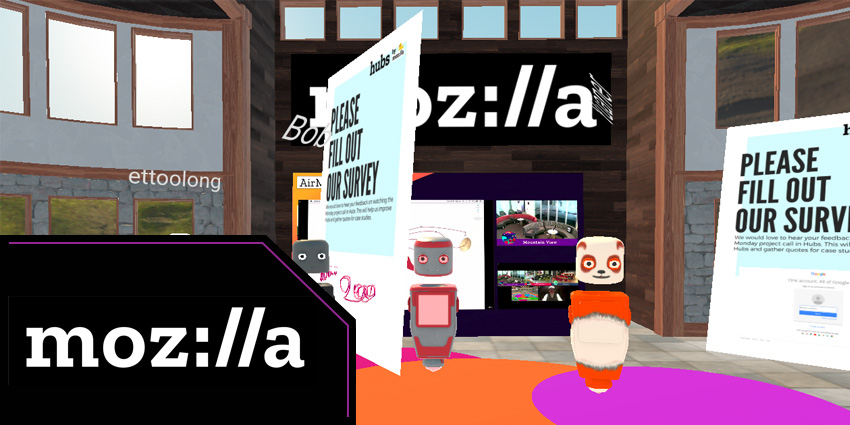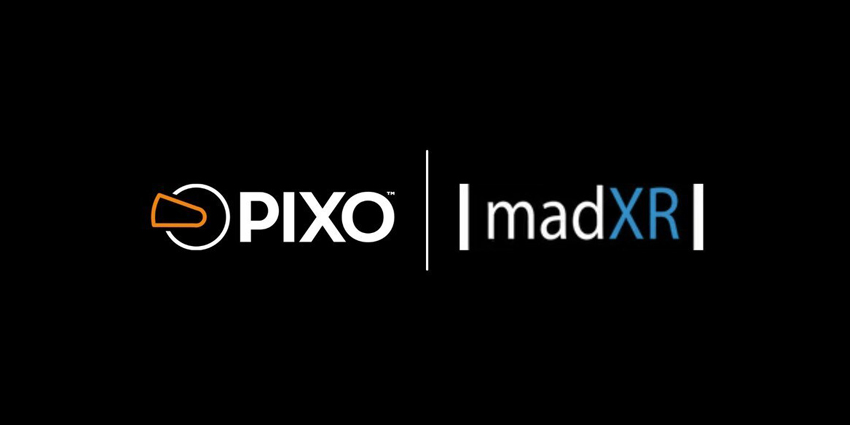Mozilla Hubs is an interesting product in the VR collaboration space. It is powered by Mozilla Mixed Reality – the XR arm of one of the world’s leading browser technology providers. The company launched Mozilla Hubs in 2018, as a free, experimental software that’d help users from different industries and verticals try out VR collaboration as an alternative to traditional conferencing tools.
Hubs became so popular that in 2020, Mozilla launched a paid option for enterprises hosted on the cloud. The new Mozilla Hubs cloud is based on Amazon Web Services (AWS), and you can choose to have a dedicated content streaming server for better security.
Meanwhile, Hubs continues to be an open-source project, available on GitHub for anyone to customise and use.
What are the Key Features of Mozilla Hubs?
Mozilla calls its Hubs application an experiment in “open social VR,” accessible both through virtual reality headsets and web browsers like Chrome and, of course, Mozilla Firefox. Once you create a virtual room using hubs, it becomes instantly shareable through a link – no downloads or installation required.
VR environment design
Design in Mozilla Hubs is powered by Spoke, the company’s open-source 3D environment design project. Spoke integrates with Sketchfab and Google Poly, letting you easily import 3D objects and scenes you have created previously. Spoke also has a web editor, so you won’t need a VR headset to start designing your very own collaboration space.
Multi-platform access
Mozilla Hubs makes it increasingly easy to join a VR meeting, without getting into a complex set-up scenario. Once you design the space and share the link via email, chat, or any other channel, meeting participants can jump in via a platform of your choice. Hubs is compatible with web browsers, as well as popular headset manufacturers like Oculus and Samsung. There is even a specialised Firefox Reality browser, meant for browsing and consuming 3D content on the web.
Personalised avatars
Since the COVID-19 pandemic, Mozilla has integrated the Ready Player Me avatar creator engine into the Hub’s platform. This lets you convert your two-dimensional photograph into a highly accurate personalised avatar. Over 30,000 users used the tool within a month of its launch!
Cloud-based enterprise-grade performance
Mozilla Hub’s cloud is a leapfrog update to the original Hubs platform, offering companies a secure, convenient and ready to use VR collaboration solution. AWS hosting means that you get multiple servers for streaming media, and you can assign a dedicated server for content. This lets you configure your rooms for greater uptime, and large concurrent user numbers for big events, not to mention keeping your data secure. All billing is based on AWS resource use.
What are the Benefits of Using Mozilla Hubs?
The biggest USP of Hubs is its sheer convenience. Starting a VR meeting is as simple as copy-pasting a link – without any hardware or infrastructure prerequisites. Hubs Cloud also supports self-hosting, in case on-premise is part of your organisation’s must-haves.
How Do Corporate Collaboration Spaces Work in Hubs?
Mozilla Hubs lets you bring your own corporate domain or create a new website from scratch. This can be branded using your branding elements, 3D content, etc. to provide a consistent collaboration experience.







